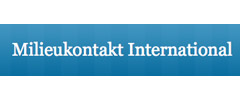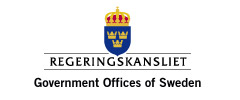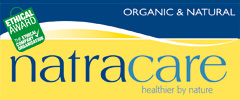Georgia: Create local capacity for sustainable development
New EU financed project started in Georgia
02.11.2010
| Countries: | Georgia |
| Donors: | EU |
| Partners: | Greens Movement is the lead applicant, and all Georgian WECF partners - Caucasus Environment, Center for Social Development Akhalsikhe, GEBMA, PAROS, RCDA, SEMA and WECF |
| Issues: | The project is a continuation and scaling up of Empowerment and Local Action program (ELA) 2008 - 2010 |
| Duration: | 11/2010 - 07/2011 |
WECF partner Greens Movement of Georgia/FoE Georgia has been granted the project ‘Create local capacity for sustainable development’ in partnership with WECF and its Georgian partners, financed by the European Commission in Georgia. The goal of the project is to build the capacity of 6 NSAs and 14 local communities and LA’s, with a particular effort on empowering women, in the development of local entrepreneurial activities for improved access to safe energy, water and sanitation in 5 regions in Georgia, and increasing public participation in environmental decision making by having the target groups formulate lessons learned and present their policy recommendations to policy makers, contributing to MDG’s 1, 3 and 7.
Greens Movement is the lead applicant, and all Georgian WECF partners - Caucasus Environment, Center for Social Development Akhalsikhe, GEBMA, PAROS, RCDA, SEMA and WECF participate in the project. The partners have different specializations, and work in synergy, helping each other in their area of expertise, exchanging experience regularly.
The project is a continuation and scaling up of Empowerment and Local Action program (ELA) 2008 - 2010. The successful approaches used in the ELA project are further refined and developed. Lessons learned are taken into account, while efforts are made to scale up the suitable technologies that were tested and demonstrated in ELA. The process of adoption of sustainable technologies in Georgia is to be continued.
Project goals:
- Identify individual needs and opportunities of rural communities and explore the potential for upscaling of alternative technologies
- Improving the quality of life - increased health status, improved livelihoods and improved sanitation as well as poverty reduction and empowerment of 14 low income rural communities in 6 regions
- Promote gender equality, human rights and the protection of children's rights
- Contribute to global climate action by the development of renewable energy technologies, and raise awareness about the causes, implications and possible mitigations measures of climate change.
- Strengthen the capacity of local community organizations, NSAs, and local authorities, and their cooperation, based on self defined needs and commitments
- Create local capacity for development of local infrastructure, including women entrepreneurs, in the area of sustainable energy and water/sanitation services for low income households
- Increase NSA's and citizens' awareness about sustainable development, alternative technologies and their rights and the of understanding national and international policies and their implications for poverty and equality in their region
Project implementation
Currently, no solar collectors are produced in Georgia, but they are imported on a low scale for a high price. The project foresees the set up of 5 resource center in the project regions, promoting and producing sustainable technologies like solar warm water collectors, solar fruit dryers and ecosan toilets, partly on a commercial base in order to create access to alternative technologies for a wide range of the Georgian population. In order to ensure the high quality of the first locally produced solar collectors, 4 Georgian experts are being trained by the German company ‘Solar Partners Sued’ (http://www.zukunft-sonne.de) in Kienberg, Bavaria during a practical internship of 3 weeks.
A socio-economic study about the potential for up-scaling of these technologies is being carried out in order to identify a suitable strategy for the resource centers. Start up meetings with the partners and communities have been carried out and the participating NGOs have been trained on Participatory Learning Appraisal and community mobilization. Training materials are developed jointly, based on the experience gained in the ELA project.
Related News
International Conference “Thermal solar and insulation technologies and policies in Georgia”
On February 15, International Conference “Thermal solar and insulation technologies and policies in Georgia” was organized in Sheraton Metekhi Palace
16.02.2011 | REC Caucasus
Resource centre for Water, Sanitation and Renewable Energy opened in Western Georgia by RCDA
Regional resource centre for Water, Sanitation and Renewable Energy was festively opened in Khamiskuri, Khobi district on 26th November 2010 by RCDA and local and regional authorities with participation of WECF, Greens Movement and other WECF partners
18.01.2011 | Anna Samwel
Georgian kindergarten toilet festively opened
On November 19th, 2010, international World Toilet Day, the first public Urine Diverting Dry Toilet* in Western Georgia was festively opened in the kindergarten of Khamiskuri, Khobi district by RCDA and the local authorities
22.11.2010 | Anna Samwel




































